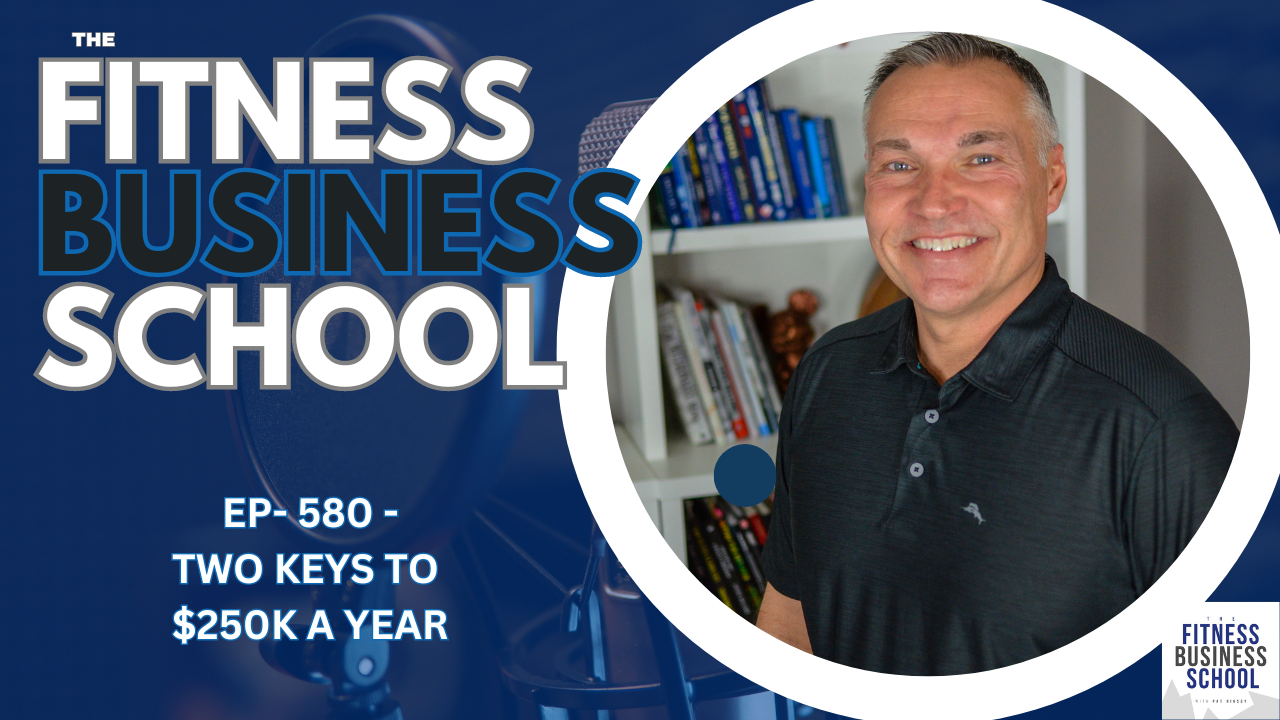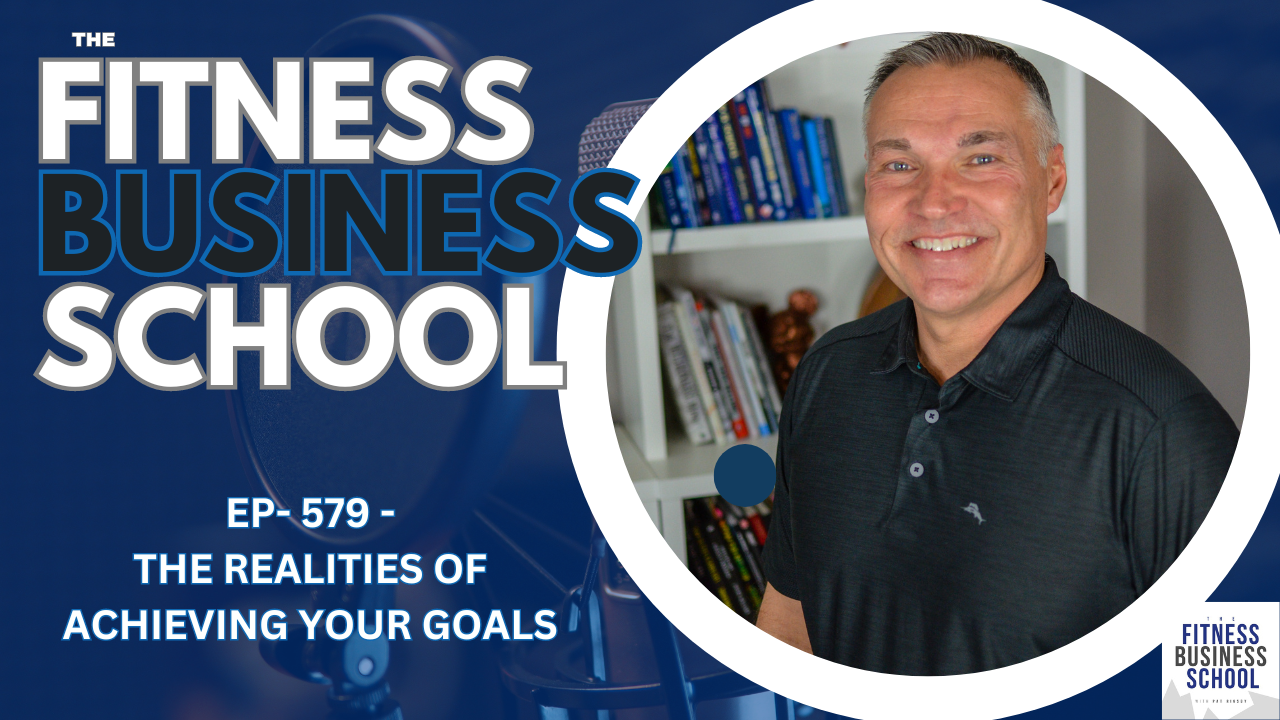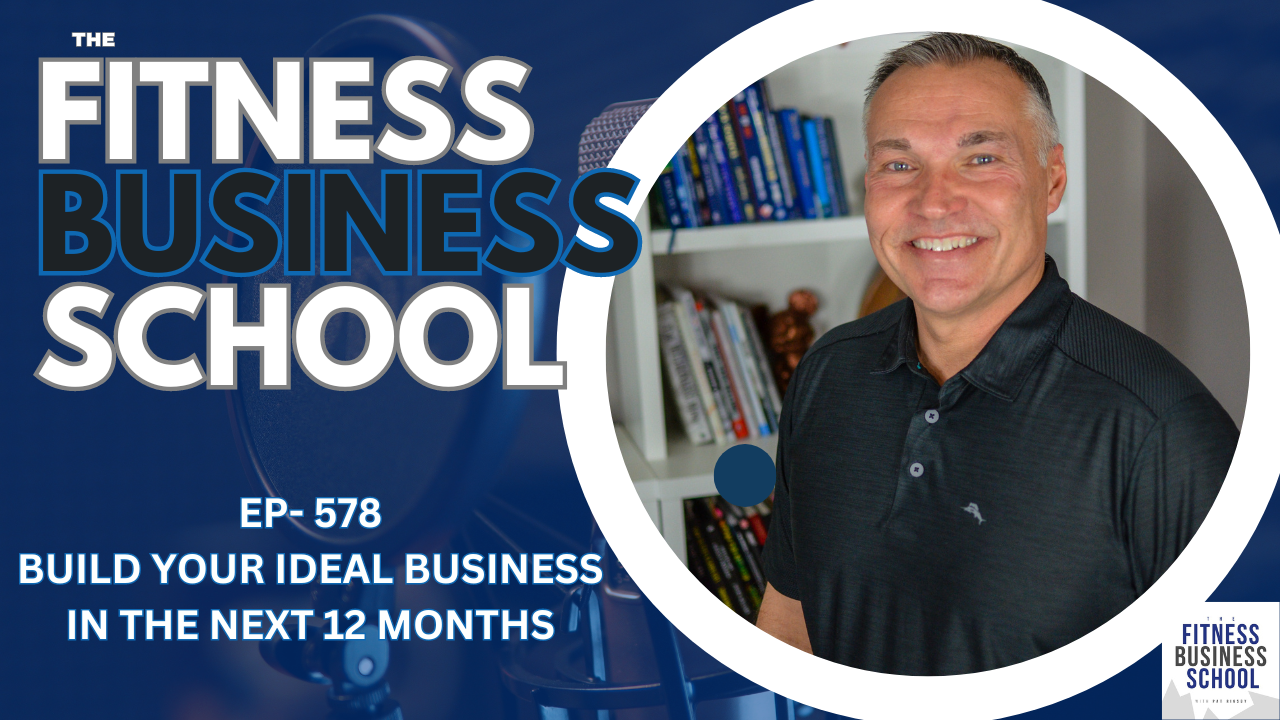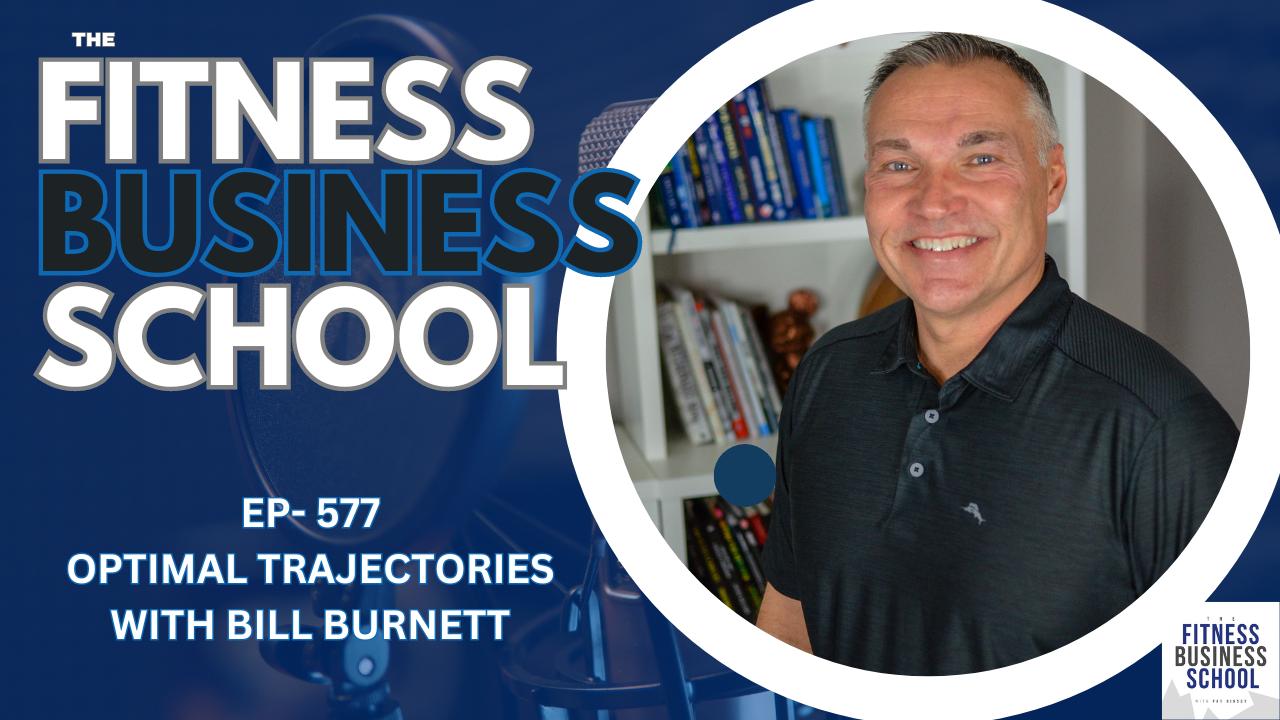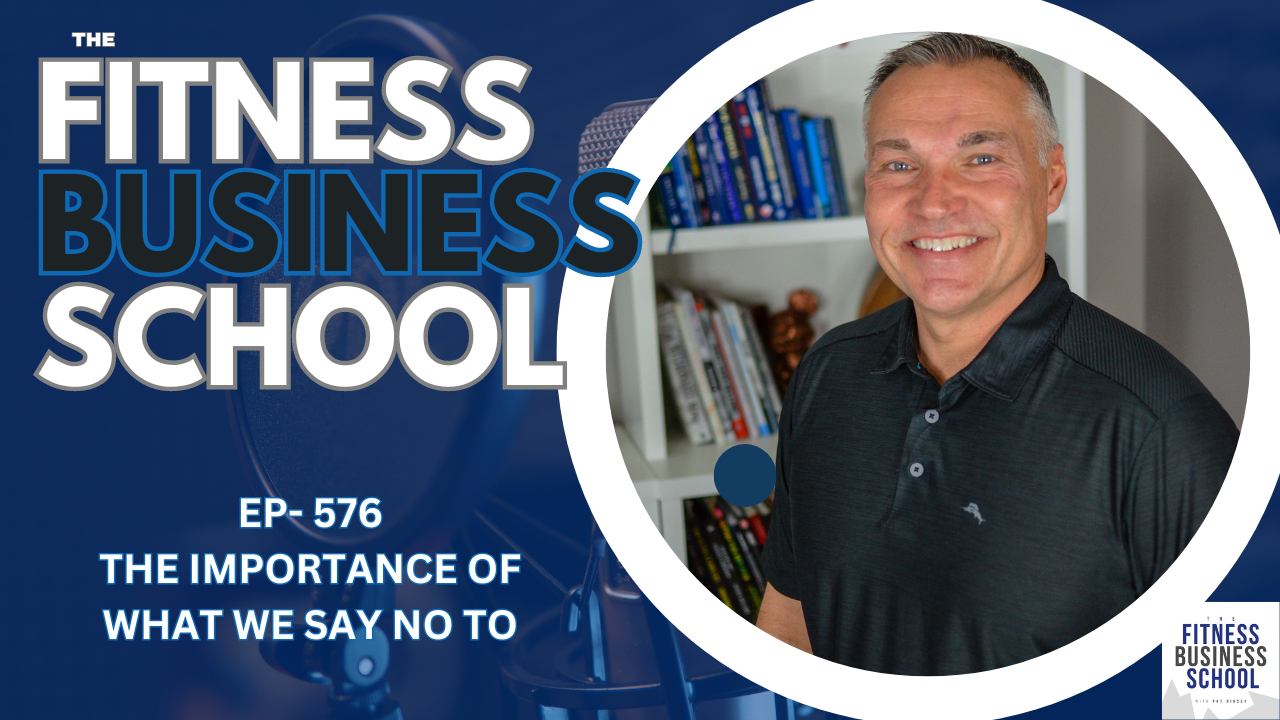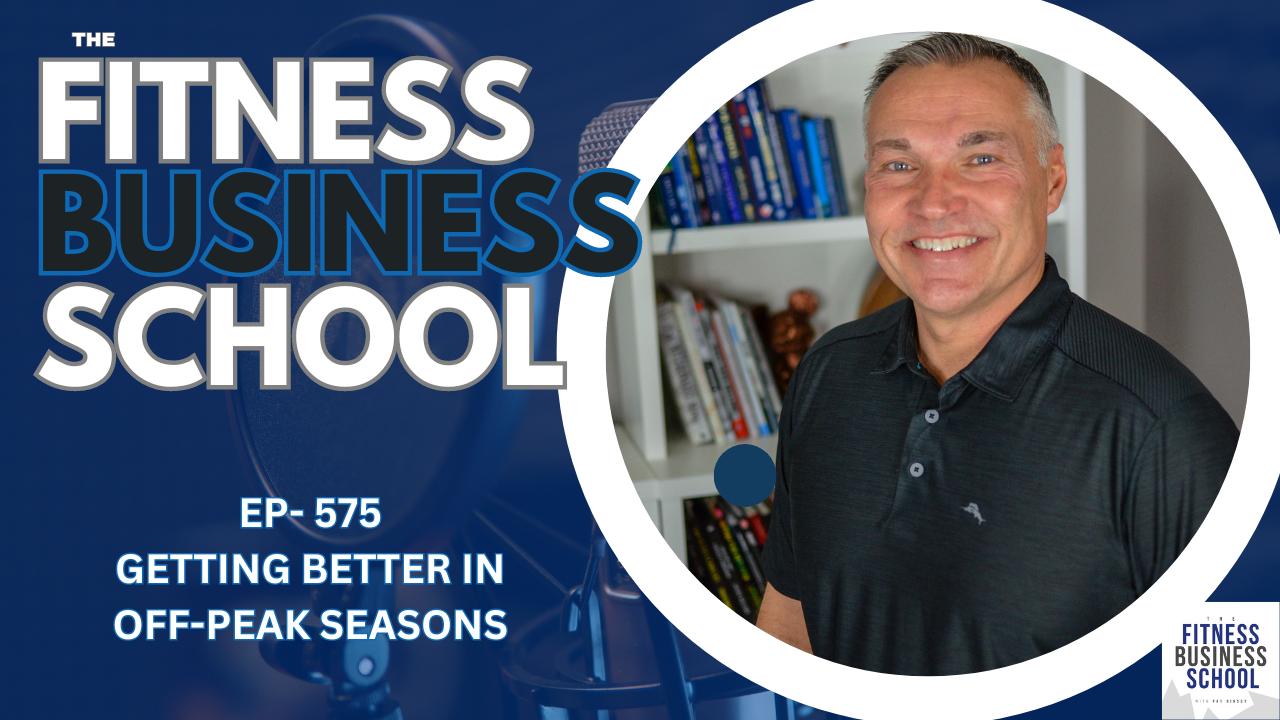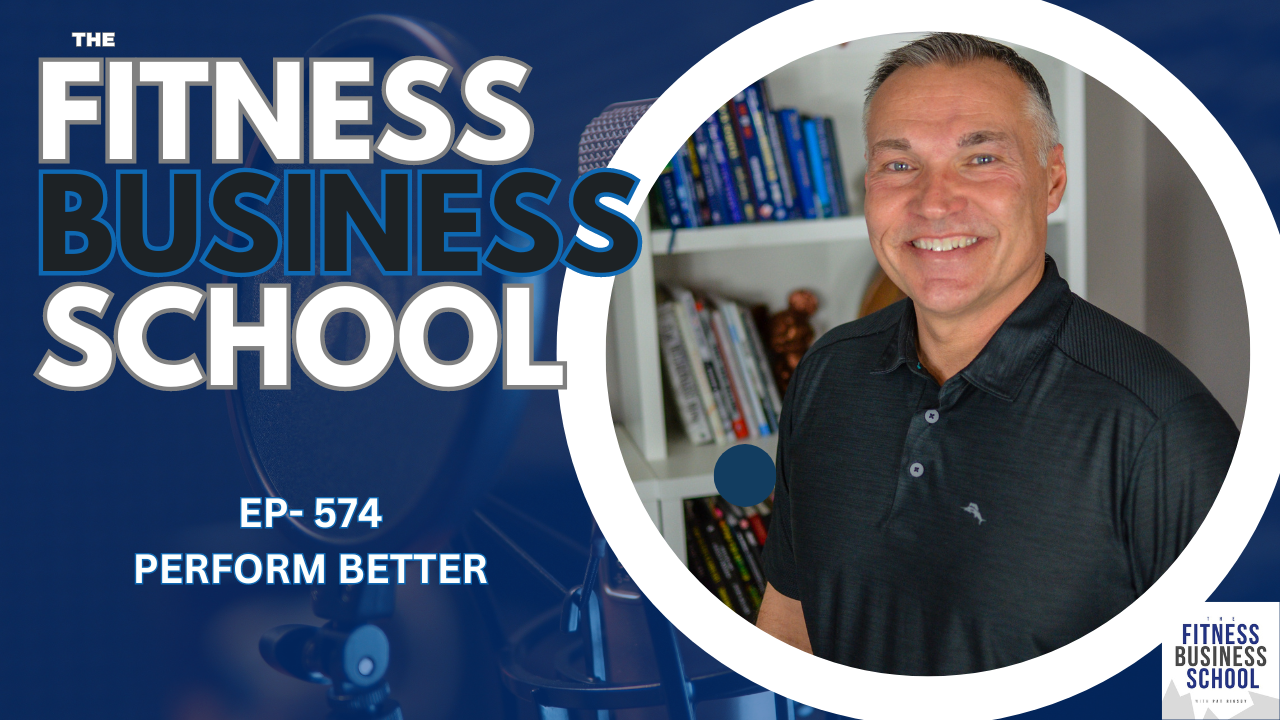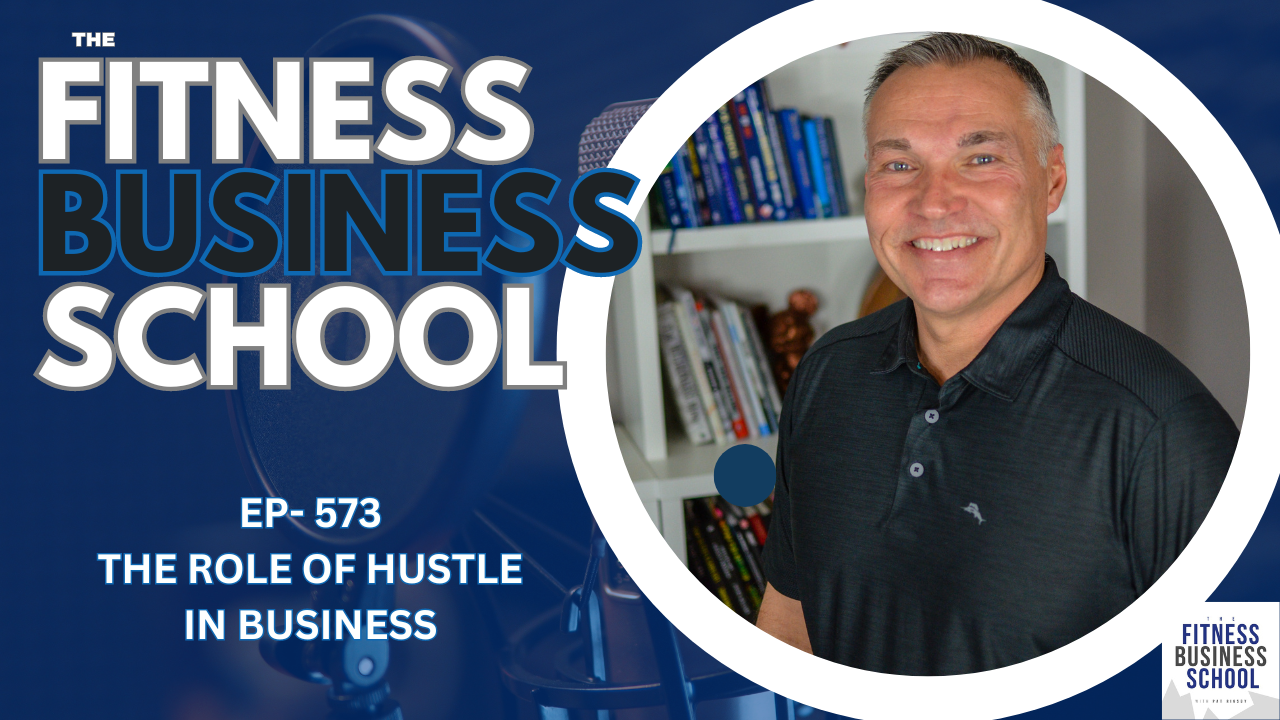Show Notes
00:00 Introduction to the Series Finale
00:46 The Importance of a Flexible Schedule
04:21 Achieving Personal and Professional Satisfaction
07:39 Final Thoughts and Next Steps
09:19 Special Offer and Closing Remarks
Full Transcript
Hey, Pat Rigsby here and we’re on to our fourth part in our four part series of creating your ideal business. So let’s get to it.
Welcome to the Fitness Business School podcast, the show for fitness business owners who
want to grow their income, increase their impact and improve their lifestyle. Be sure to listen to the end
of this episode because we have a brand new special offer exclusive for listeners. So stay tuned.
We’ve walked through the first three kind of sections of the framework that I use when I’m coaching somebody on creating or operating their ideal business. So let’s move into the fourth part. And there are two pieces of that. The first is you must enjoy a flexible schedule. If you’re going to own your ideal business.
Now, as I’ve mentioned, referencing startups, early stage businesses that I consider that launch stage, we all feel like our business owns us then, right? We’ve just created a more challenging job that places more responsibility on our shoulders. And frankly, it often provides us with less of an immediate reward, but over time to have your ideal business, you need to move forward and begin creating some guardrails to determine how you’re spending your time.
Now, if you’re on the path to owning your ideal business, you’re going to have plenty of flexibility in your schedule. You’re going to be able to take vacations. You’re going to be able to coach your kids, sports teams, or attend their scholastic events. You’re going to have some weekend time off. You’re going to have some evening time off.
And frankly, in our industry, that’s a lot. That’s doing pretty well. In fact, that’s a level of flexibility that fewer than 5 percent of the owners in our industry ever get to, because. , they’re typically working opposite hours of traditional jobs because clients are coming to us before or after work usually.
But remember, just because your business delivers a service to people coming in at hours or on days that you don’t wanna work, doesn’t mean you need to be the person filling all those services at that time. You can be the person facilitating or coordinating the delivery of those services. You can be the person empowering your team to deliver those services so that you can step away when you want to enjoy a happy, fulfilling life as a business owner.
The ultimate schedule goal of having your ideal business is to be able to work more so on your terms. That doesn’t mean you don’t work. We have responsibilities. That’s why I don’t use the word freedom here. You’re not free from responsibility or obligation. You have flexibility in the role you play or in some cases when you do it.
And if you’re like me and so many of the other business owners that I know who’ve done pretty well and still had those ideal business guardrails in place, You’re still really motivated, and you still have a strong sense of purpose, and you want to keep growing, you want to keep improving, so that doesn’t mean you don’t work.
It’s just, you’re now working more on your terms. You choose, you decide. To have your ideal business, you have to deliver real value, and that’s what you provide in exchange for the compensation that people give you. When somebody says I want freedom. What they’re really saying is I want flexibility because freedom implies you aren’t responsible for that value exchange.
So remember, we are working on our terms. We want autonomy and flexibility, and frankly, as much as we can have, and if there are days or even weeks that you need to take off to do certain things, the business doesn’t slow down because of it. If you want to travel more, you can. An ideal business should give you ample flexibility and offer you plenty of autonomy to build the schedule that you want so you can enjoy the lifestyle you deserve in exchange for that impact, that value that you’re providing.
That’s really the ultimate goal of having an ideal business, to be able to have a massive impact for the people that you serve, the team you employ, but to do it in a way that provides you income and even wealth. And a lifestyle that you actually like living. To marry with that, the other filter that I looked through, and I pay a lot of attention to this one because it’s our business.
We should be building something we really enjoy. So you must experience both personal and professional underlying professional satisfaction there. And A lot of the time when we take on the role of business owner, even if we’re not thinking about it in this way before we embark on this kind of entrepreneurial journey, we shift quickly in this acceptance that personal and professional satisfaction or fulfillment or happiness are mutually exclusive things.
We start out in our career and we’re overwhelmed, we’re overworked, we’re burned out, we’re stressed out. Start to wonder if we made the right decision. We take on all these responsibilities being a business owner and we start to think about the sacrifices that we’re making that all of us as business owners make.
But again, we shouldn’t be in a holding pattern. We shouldn’t be resentful of others that are maybe a couple steps further along in their journey. We should learn from them. We should be inspired by them and we should start working towards moving into a role where our business not only allows us to help others achieve their goals, but it is a catalyst for us achieving our goals.
And that’s really the last kind of piece of this framework that I use this acceptance that we must pursue both personal and professional. Fulfillment, satisfaction, and success. It’s the culmination of all the other pieces of this framework, because if we fail at number eight, we’re really not building our ideal business.
We’re not enjoying the life that we want to have as an owner for all the work that we’re putting in all the effort, all the time and energy and resources. We’ve invested. So one of the things that I always want to remind people of is don’t settle, don’t be willing to compromise this belief that you can have.
Both personal and professional satisfaction simultaneously. In fact, if you’re building your business the right way, and if you’re strategic, and if you’re adhering to those other pieces of this framework that I’ve talked about, you should have both. You should be working in a way that energizes and fulfills you.
You should be working a schedule and playing a role that makes you happy and allows you to have a real powerful impact. And you should be compensated. For the value that you’re providing and if you’re attracting the right clientele, you’re going to be enthusiastic about going to work. If you’re employing the right team, you’re going to be happy to be around those people because you see how you’ve empowered them to execute on your vision and you want them to be successful.
You’re rooting for them too. And if you’re doing these things that I’ve discussed, then it’s, This last kind of piece is tying all of it together. So again, don’t settle, don’t compromise on what you aspire to be. Take this last kind of piece and say, okay, this is the litmus test to whether or not we’re really on the right track, or maybe we need to go back and re engineer the business we’re building.
I know that most of the listeners who will be listening to this are not going to be in person with us at this upcoming Mastermind meeting. And certainly there was a limited number of people at our boardroom meeting in the past, the members of that community. I would love to have you at a future meeting.
If you want to do a little bit of do it yourself, work on your own taking your own business and kind of running it through this filter of what we’ve covered in these four episodes. You’re going to be able to see, hey, these are my opportunities for improvement. These are the gaps that I have.
These are the places that I can really make some meaningful changes fast and see some real progress. And maybe as much as anything, you’re going to see that, yes, it is possible, even if you are in that kind of overworked and underpaid and high stress kind of place that business owners often get to. That there is a way forward and the, with the right framework, the right approach, the right strategy, and knowing your destination and reverse engineering a way to get there, then it not only is possible, it’s probable.
It’s a path that you can follow to build the business you want. Hopefully this little series has helped you do that. Now, if you want. Additional help. If you want to talk through any of this with me, if you want to see if the things that we do are a fit to help you create your ideal business, just shoot me an email at [email protected] I would love to talk with you about what you want to build and how I can help you do it or how we can partner with you to create your ideal business.
Thanks for listening to this episode of The Fitness Business School.
Before you go, I have a quick announcement:
One of of the things that we’ve been doing with our current clients is taking them through this Ideal Business diagnostic and really what it is, this checklist that allows you to pinpoint exactly what your business needs next so you can keep improving, keep growing, and build a business that you love to own, one that pays you well, one that allows you to have the impact you wanna have and one that allows you to have a lifestyle that you truly enjoy.
In this diagnostic, we walk through everything and we do an evaluation and can instantly pinpoint what you need to do next to build that business that you want. I’m going to extend this opportunity to get on with either me or my team and take you through this evaluation and fix your business’s most vital needs fast.
So if we take you through this, you’re gonna be able to make those vital changes that you need to finally have what I call your Ideal Business. If you’d be interested in going through this entirely free, risk-free diagnostic with us and learn what you already have in place, what you’re doing well and where are your greatest opportunities for rapid improvement are just shoot me an email with diagnostic in the subject line to [email protected].
Again, an email to [email protected] with diagnostic in the subject line will get
you scheduled and take you through this evaluation to help you build the business you want.
